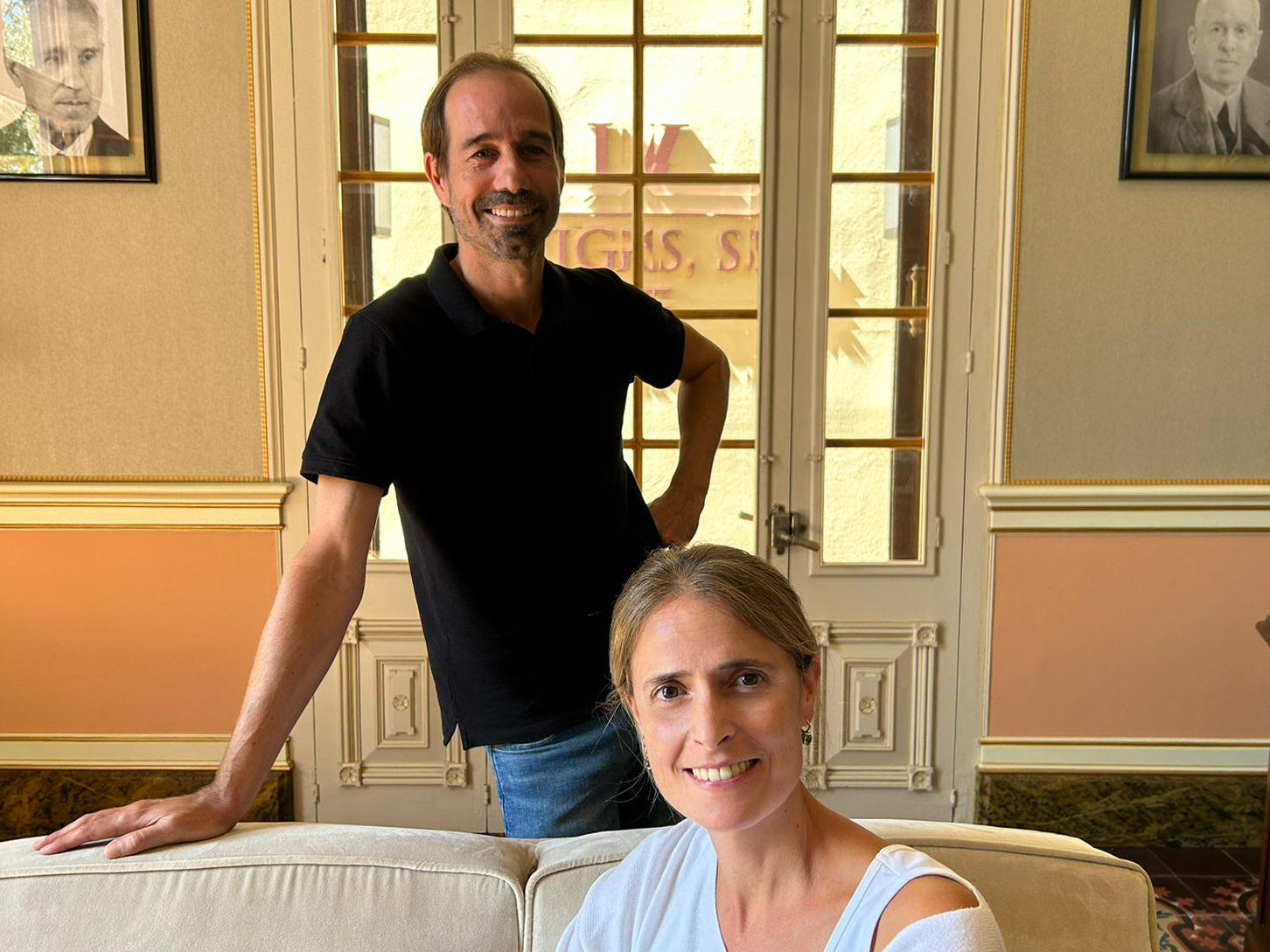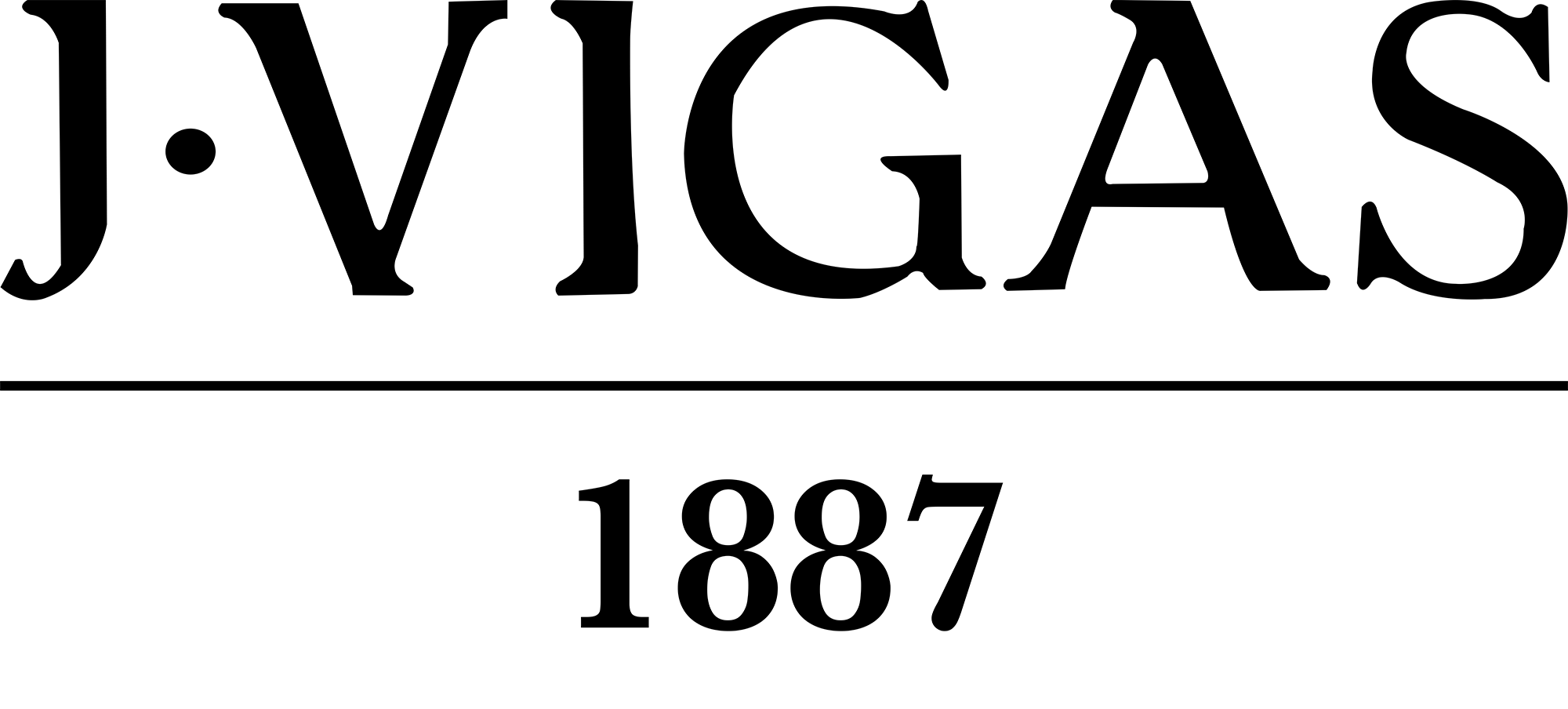
INTERVIEW
“The wineries are surprised by what we are doing in R+D+i”
A talk with Raül Vigas and Raquel de Nadal, director of Sustainability and Innovation, about the present and future of J·Vigas and the cork sector
January 2024
How would you define JV in five words?
Raül Vigas: Knowledge, sustainability, quality, trust, innovation.
Raquel de Nadal: The same, and I would add the vision, always thinking beyond.
What is that vision of the future?
RV: At the company level we focus exclusively on aging wines with a 100% natural cork product. We believe that alternatives or microgranulates will have a place in rotation wines but for aging wines, which need evolution, there is no closure that offers the characteristics of natural cork.
On the other hand, sustainability is going to be increasingly important in customers’ purchasing decisions, and having the most sustainable closure that exists, the 100% natural cork stopper, and the one that offers the most benefits, is going to be decisive for all those wineries that seek maximum quality and a local product that contributes to the preservation of nature.
RdN: Our vision in the near future is that in a few years the wine sector sees us as a partner, our knowledge will influence the wine to evolve as the winemaker needs, there will be more interaction between the winery and the cork farm…
In summary, research will be one of the pillars at the sector level, such as the Wine Tractor Project, where the wine and cork sectors work together.
At the level of the cork sector it has been seen in recent times that there are fewer and fewer independent companies since many have disappeared or are part of large groups…
How does J·Vigas manage to ‘resist’ being a medium-sized company?
RV: On the one hand we have a product that is at the highest level in technological development, and on the other hand, what differentiates us from large groups is the trust of customers. Pampering the client, listening to them, advising them, offering close, transparent and honest treatment allows us to maintain lifelong clients.
That is why we also focus on nearby markets, with Spain, France, Switzerland and Italy as the main markets. This way, we can have this relationship of trust, we can respond quickly if they need us, visit periodically…
An almost friendly relationship is generated that is difficult to achieve and is very easy to lose if the product or service is not up to par.
RdN: When we go to the wineries and explain what we are doing in R&D&I, they are surprised because we are really at the highest level of development. Despite being a family business, we prioritize innovation, and that is something you don’t usually see in companies our size.
I think that has kept us to this day with the ability to compete with larger companies, with the addition that we can offer a more personalized service.
When developing a new innovation project, what inspires you?
RdN: The close relationship we have with the wineries allows us to know their interests and concerns, which for us is strategic.
What happens is that at JV many times a need arises for knowledge about a characteristic of cork and then we ask the wineries if it is relevant to them. If this is the case, we propose a collaboration project.
There are other cases where a property to be studied interests more than one company in the sector, as for example has recently happened with the transfer of oxygen, for which an operating group is launched. In the latter case, it was not just one property, but gaining knowledge about several of the properties that led us to the Cork2wine project. In all cases, not only corkscrews but also wineries are involved.
Once Cork2wine is finished and with the same vision, we are going to participate in a project that is led by the wine industry, the Wine Tractor Project in which we are part of a primary project to continue acquiring knowledge about the cork matrix.
What is the biggest challenge for cork stoppers?
RV: We are lucky, but it can become a handicap, which is that we work with a natural product: it is not easy to obtain standard values or create more industrial processes and, furthermore, it interacts with another natural product, which is wine.
Can a stopper come out fine from the factory, but cause problems later?
RV: Exactly. As in our case we make high quality stoppers for aging wines, they are wines that will be opened after years, with the implication of good conservation by all those involved: winery, distributors, transportation, restaurants…
When there is an error it is very difficult to know where the problem occurred because there are many actors involved who do not work together.
And are all these actors aware of their responsibility when it comes to preserving a wine?
RdN: There is a lack of more pedagogy on conservation, as well as the use of cork, because it is a natural product that must be used in a specific way to offer optimal results.
Política de privacidad | Política de Cookies | Aviso legal | Créditos
